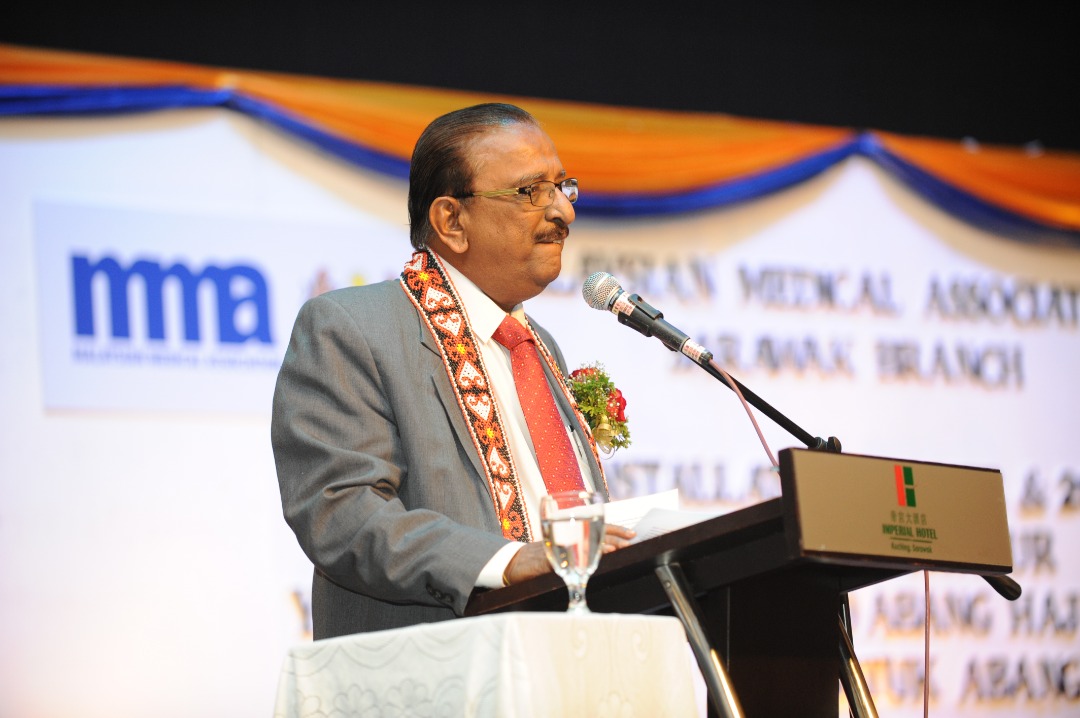KUALA LUMPUR, Jan 7 — The Malaysian Medical Association (MMA) said it has agreed with third-party administrators (TPAs) to generally maintain the total bill at private clinics, despite deregulation of doctors’ consultation fees.
This will be done by lowering medicine prices, even while private clinic general practitioners’ (GPs) professional fees go up, so that employees’ health care plans managed by TPAs remain roughly the same.
“We hope this will be honoured in which there is no or minimal impact on the total encounter fee,” MMA president Dr N. Ganasbakaran told CodeBlue. “We are concerned that a small group of GPs may undercut in a desperate attempt to remain in the panelship.”
Fair fees should be charged for quality services provided, he added, as he panned physicians who think that offering cheaper rates will put them at an advantage, saying this is a “compromise” of their duty of care in the professional services.
“MMA is strongly against these unhealthy practices as ultimately patient care will be compromised,” said the head of the country’s largest group of doctors.
Dr Ganabaskaran did not state how much private family doctors would raise their consultation fees, but MMA and other physician groups have previously demanded for their rates to be tripled from the current RM10 to RM35 quantum, to RM30 to RM125, the rate earned by hospital-based GPs.
Industry stakeholders have predicted increased immediate higher charges among private health care practitioners once the deregulation decision kicks in, which has yet to come into effect, and will take at least one to six months before GPs, dentists, and specialists in private clinics and hospitals are free to set their own consultation fees.
Under Schedule 7 of the Private Healthcare Facilities and Services Act (PHFSA) 1998, private clinic GPs’ and dentists’ consultation fees are capped at RM10 to RM35, and RM25 to RM250 respectively. Under Schedule 13, private hospital specialists’ consultation fees are legislated at a rate of RM80 to RM235.
Separately, Health Minister Dzulkefly Ahmad today said he has taken note of similar concerns from the public over deregulating private health care practitioners’ professional fees, but insisted that the decision was a good one as the power to decide what medical treatments they wanted will return to the people.
“And if there are some who assume that private clinics will impose high (consultation) fees and so on, we have ways to handle such complaints like this, and we hope private GPs will be responsible by not imposing overly high fees.
“If they (patients) incur high charges, surely that clinic will be unpopular, and soon, they will revise their charges,” he told reporters on the sidelines of an event at KL Sentral here.
Dzulkefly also reiterated that such practitioners would have to put up their consultation fees, adding that this will see GPs competing among each other to do better and bring in more patients.
“We have been engaging (stakeholders) and we can engage further, no problem,” he added. “We’ve had several rounds of consultations, but, if needed, we will have more (consultations) again.
He also said he will be issuing a memorandum soon on behalf of Cabinet to outline the deregulation decision in more detail, noting that the previous December 6 announcement was only a “principal agreement” by Cabinet.
Dr Ganabaskaran, meanwhile, did not believe that deregulating physicians’ consultation fees would affect pharmaceutical companies because of lower drug sales to GPs and dentists, who do not have to depend on selling medicines to sustain their businesses anymore.
“The doctors’ practice is based on guidelines, and are evidence-based,” he said. “Medicines prescribed and dispensed at facilities are based on the needs of the patients.
“We foresee the medicine prices being reduced to maintain the overall encounter fees,” he added.
He also said that MMA does not predict that much of an increase to the overall charges from private hospital specialists, as the consultation fees they charge are only a small part of hospital procedure fees that are still regulated.
“It’s important to note that only 30 per cent of the hospital bills are doctor’s fees which include consultation and procedures. Maybe more focus should be given to 70 per cent of the hospital bills,” he said.
He was similarly pessimistic about significantly higher overall bills in private clinics, saying most clinics see less than 30 patients daily, and won’t risk pushing patients away from their clinics.
“Almost 80 per cent of patients seen in a GP clinic are regular or repeat patients. The doctors have built a patient-doctor relationship and are cost-sensitive.
“The encounter fee largely will remain the same with minimal impact,” he said.








